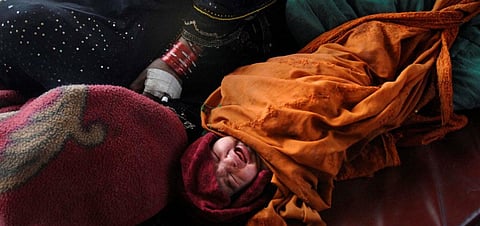

One in four healthcare facilities in the world lacks basic water services and one in every five has no sanitation service, says the first comprehensive global assessment of water, sanitation and hygiene (WASH) in healthcare facilities by the World Health Organization (WHO) and UNICEF Joint Monitoring Programme for Water Supply, Sanitation and Hygiene (JMP).
This unavailability affects more than 2 billion people. Also, there isn’t any facility for hand hygiene and safe segregation and disposal of healthcare waste in many centres, adds the report.
These services can help prevent infections, reduce spread of antimicrobial resistance and provide quality care, particularly for safe childbirth.
“Water, sanitation and hygiene services in health facilities are the most basic requirements of infection prevention and control, and of quality care. They are fundamental to respecting the dignity and human rights of every person who seeks healthcare and of health workers themselves,” said António Guterres, United Nations Secretary-General. “I call on people everywhere to support action for WASH in all healthcare facilities. This is essential to achieve the Sustainable Development Goals.”
The numbers are worse in least developed countries (LDCs). The report finds that 55 per cent of healthcare facilities in LDCs had basic water services. Also, since every one in five births globally takes place in LDCs, the report finds that each year 17 million women here give birth in centres with inadequate facilities for water, sanitation and hygiene.
“When a baby is born in a health facility without adequate water, sanitation and hygiene, the risk of infection and death for both the mother and the baby is high,” said UNICEF Executive Director Henrietta Fore. “Every birth should be supported by a safe pair of hands, washed with soap and water, using sterile equipment, in a clean environment.”
The report also points at the fact that more than 1 million deaths each year are associated with unclean births. Infections are responsible for 26 per cent of neonatal deaths and 11 per cent of maternal mortality.
“Imagine giving birth or taking your sick child to a health centre with no safe water, toilets or hand washing facilities,” said Tedros Adhanom Ghebreyesus, WHO Director-General. “That’s the reality for millions of people every day. No one should have to do that, and no health worker should have to provide care in those circumstances. Ensuring that all health care facilities have basic water, sanitation and hygiene services is essential for achieving a healthier, safer, fairer world.”
At the 2019 World Health Assembly, scheduled for May, governments will discuss a resolution on WASH facilities in healthcare centres.